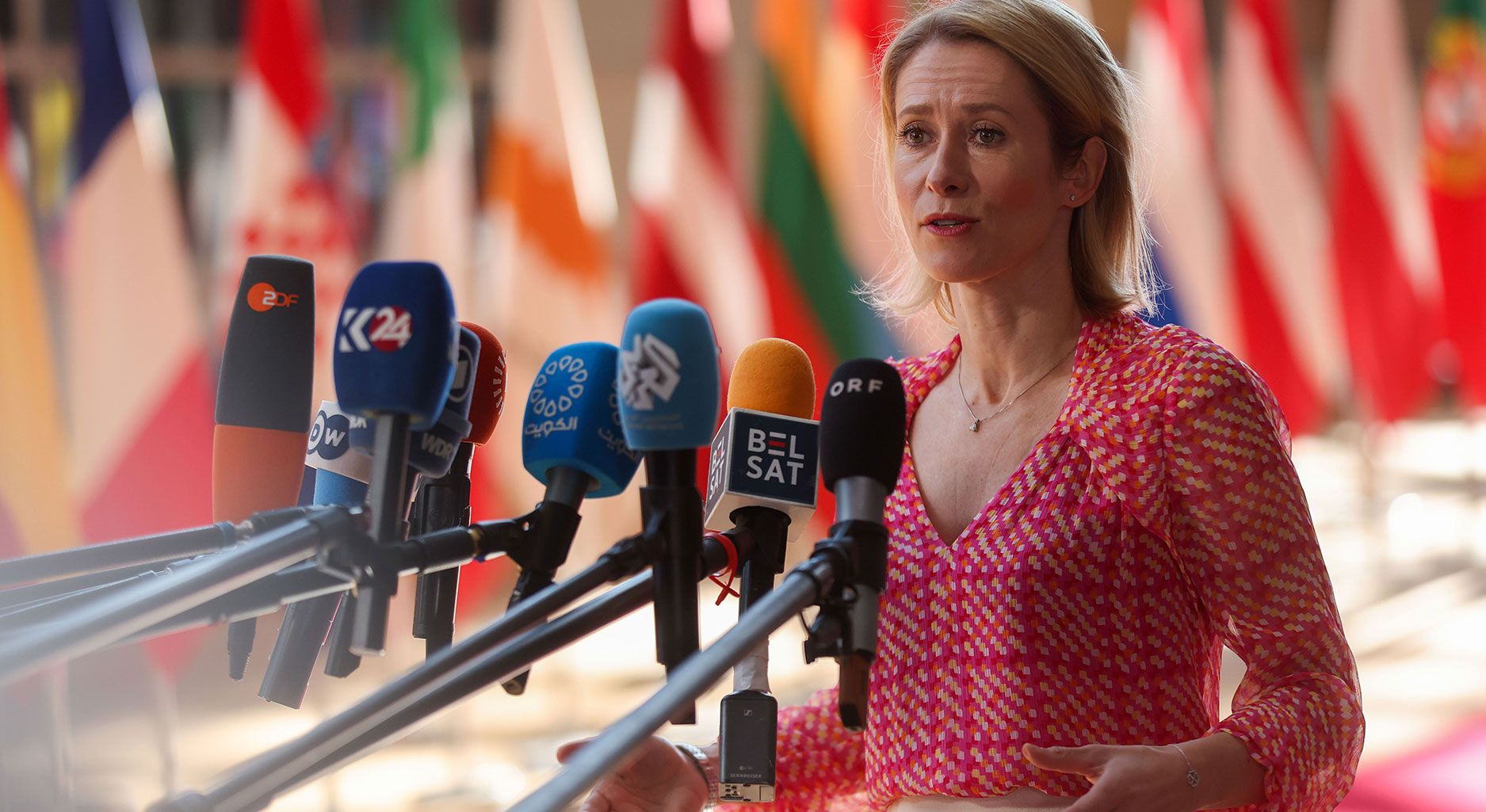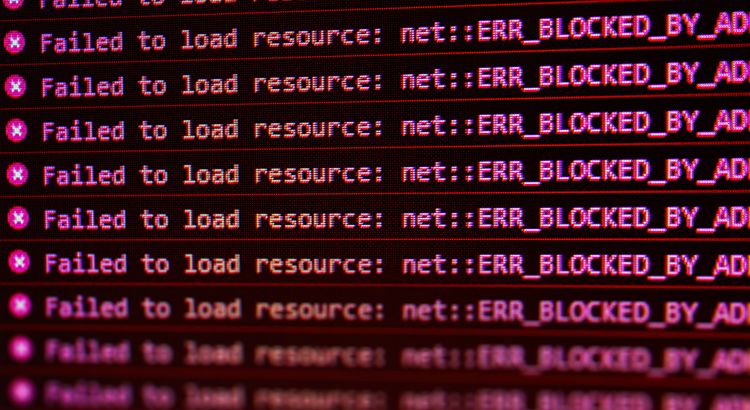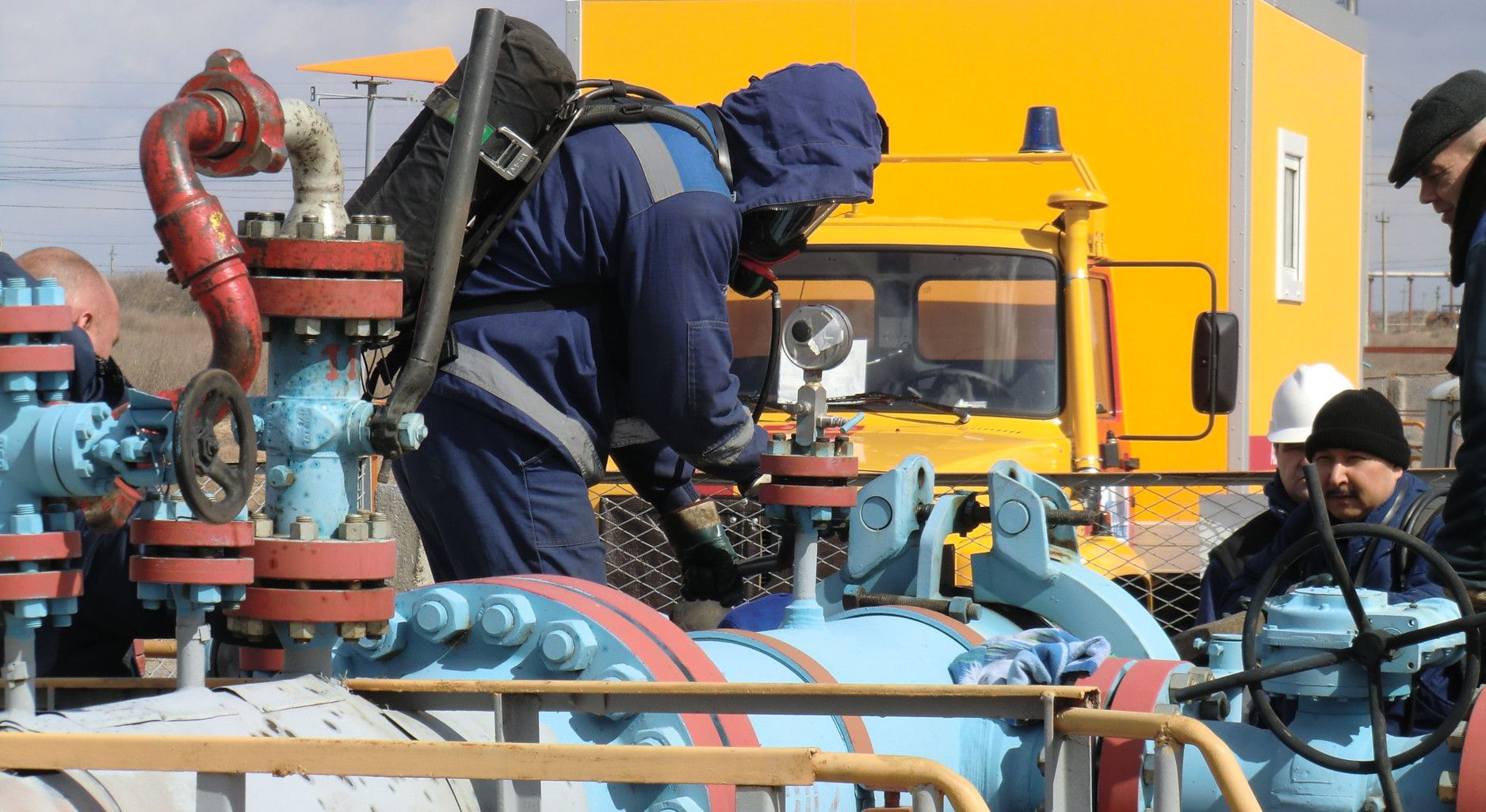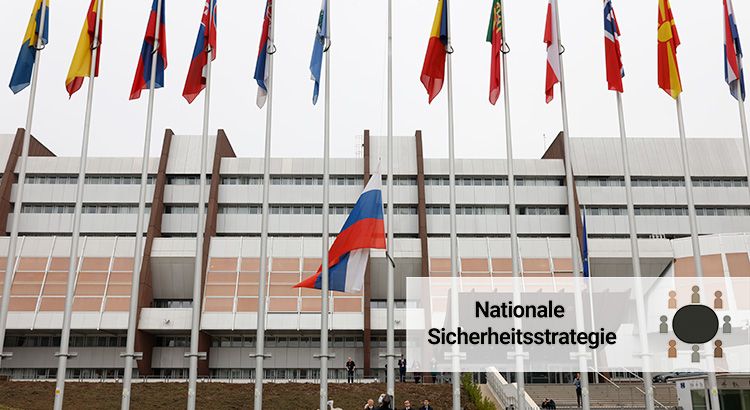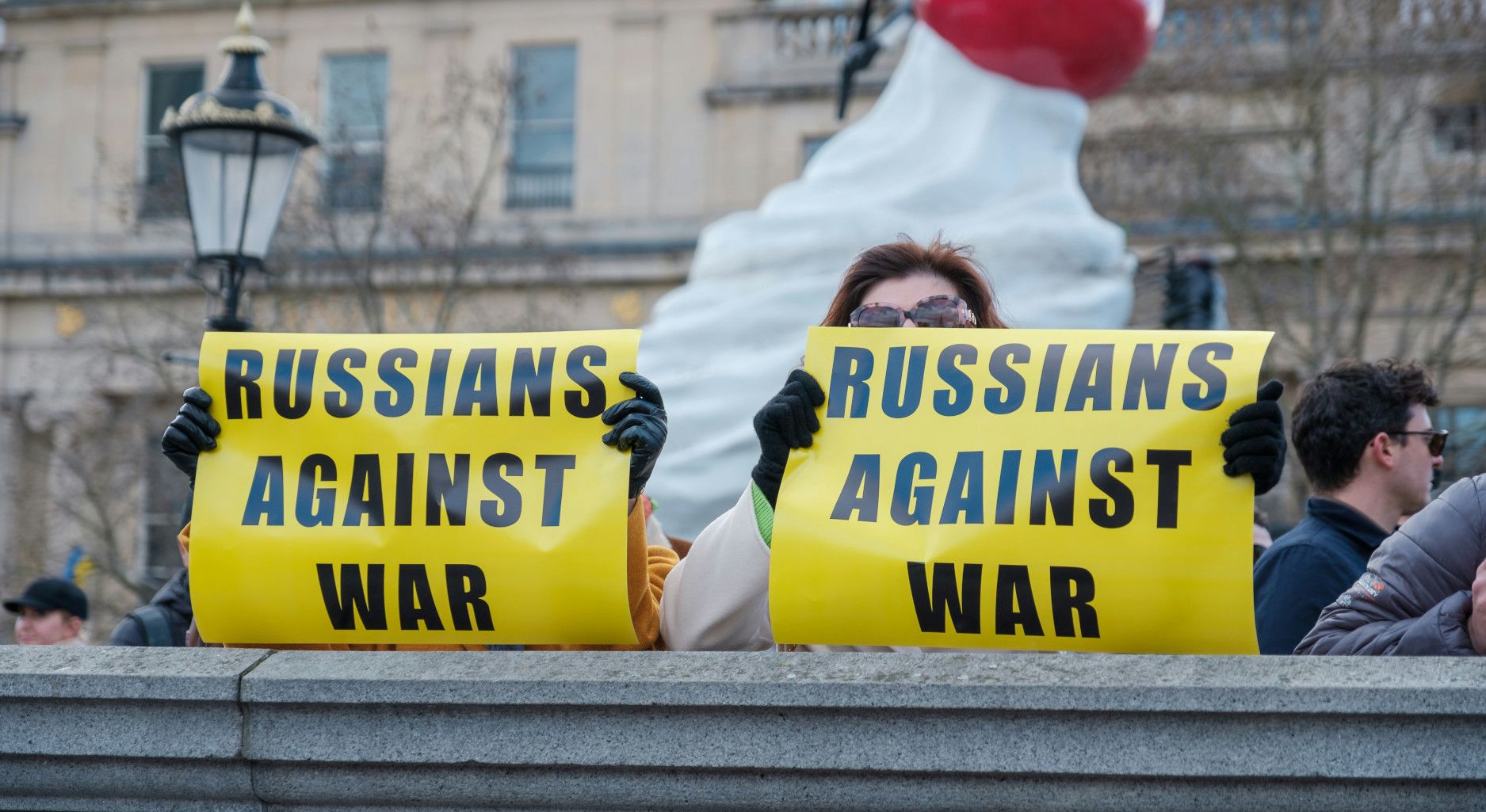Schlagwort: Sanktionen
Moving in the Rights’ Direction? An Assessment of the EU Global Human Rights Sanctions Regime
EU-wide Bans of Russian Media Outlets – More Than a Political Signal?
Russia Cuts Off Nord Stream 1: How Will This Affect Germany’s Foreign Policy?
Kontrollierte Ent- und Verflechtung als Aufgabe der Nationalen Sicherheitsstrategie
In „Die große Illusion“ entwickelt der Publizist Norman Angell 1909 das Argument, dass Kriege sich für Staaten nicht mehr lohnen, weil sie durch den Handel miteinander ihren Wohlstand weit mehr vergrößern könnten, als durch militärische Eroberungen. Angell fasst damit das zentrale friedenspolitische Argument für Interdependenz zusammen: Die Förderung wechselseitiger Abhängigkeiten zwischen Staaten und ihren Gesellschaften verhindert kriegerische Auseinandersetzungen, weil aus der Verflechtung die Möglichkeit erwächst, Wohlfahrtsgewinne zu erwirtschaften. Zugleich werden über die regelmäßige Interaktion Bedrohungswahrnehmungen abgebaut und Vertrauen zueinander aufgebaut. Dieses Kernargument findet sich in nahezu allen liberalen Theorien der internationalen Politik wieder und ist Teil des außenpolitischen Werkzeugkastens vieler liberal-demokratischer Regierungen.
Aber wie steht es um die Güte dieses Arguments? Angells Buch erschien kurz vor dem Ausbruch des ersten verheerenden Weltkriegs, dem ein zweiter noch verheerenderer folgen sollte, der im Zivilisationsbruch der Shoa gipfelte. Und die Wandel-durch-Handel-Politik Egon Bahrs und Willy Brandts wird seit dem Überfall Russlands auf die Ukraine im Februar 2022 bestenfalls als eine historische Illusion, wenn nicht als „epochaler Irrtum“ bewertet. Ist es also, wie etwa Mark Leonard in „The Age of Unpeace“ meint, ein großer Fehler der Politik auf Verflechtung zu setzen? Ist Verflechtung ein Konflikt- statt Friedenstreiber und muss deswegen strategisch auf Entflechtung und Renationalisierung der Wirtschaft gesetzt werden?
Deutschland debattiert gegenwärtig darüber, wie eine nationale Sicherheitsstrategie aussehen könnte, deshalb gehört auch die Frage auf die Agenda, wie mit Interdependenzen unter Sicherheitsgesichtspunkten umzugehen ist. Das mag manchem exotisch vorkommen, denn Russlands Krieg in der Ukraine scheint vor allem eines zu verdeutlichen: In der Sicherheitspolitik geht es letzten Endes um effektive Abschreckung und Wehrfähigkeit, das heißt um militärische Sicherheit im Sinne territorialer Integrität. Es liegt auf der Hand, dass dieses klassische Verständnis nationaler Sicherheit angesichts eines russischen Aggressors, gegenwärtig von großer Bedeutung ist. Das darf aber nicht alles sein, was in die Nationale Sicherheitsstrategie Eingang findet.
Denn Russlands Krieg macht auch deutlich, dass es bei Sicherheit nicht allein um militärische Bedrohungen geht. Es stehen noch ganz andere Fragen im Raum: Wie ist der Zugang zu zentralen Rohstoffen angesichts des Konflikts über die Erdgaslieferungen aus Russland zu sichern? Wie kann ökonomische Sicherheit, also sichere Handelswege und Wertschöpfungsketten, garantiert werden? Wie erhalten wir unsere natürlichen Lebensressourcen? Der Schutz des ukrainischen Atomkraftwerks Saporischschja während des Krieges ist nur das aktuellste Beispiel für die Bedeutung der ökologischen Sicherheit. Es geht mithin um nicht weniger als die Frage einer zukünftigen Friedens- und Sicherheitsordnung für Europa (und die Welt), nachdem dieser Krieg die kooperative Sicherheitsordnung in Trümmer gelegt hat. Für diese Ordnung ist die Frage der Verflechtung zentral.
Entflechtung und Verflechtung
Die militärische Konfrontation in der Ukraine zieht gegenwärtig eine Entflechtung der Beziehungen zwischen Deutschland (und dem Westen) und Russland nach sich. Auf politischer Ebene zeigt sich dies im Ausschluss Russlands aus dem Europarat und durch die öffentlichen Überlegungen der russischen Seite, die OSZE oder andere multilaterale Rüstungskontrollabkommen zu verlassen. Diese Entwicklungen haben teils weit vor dem Krieg eingesetzt, sie erhalten jetzt aber eine neue Qualität.
Mit den Sanktionspaketen ist die wirtschaftliche Entflechtung bereits am weitesten fortgeschritten, weil sie direkte und indirekte Handelsbeziehungen mit Russland in vielen Wirtschaftssektoren kappt. Darüber hinaus ziehen sich immer mehr Firmen aus Russland zurück, um zukünftigen Sanktionen zuvorzukommen oder um negative Presse und Druck von russischer Seite zu vermeiden. Auch im Bereich kritischer Infrastrukturen und Ressourcen wird die Entflechtung durch Sanktionen und Gegensanktionen vorangetrieben. Beobachten lässt sich das an den Bemühungen um LNG-Terminals und Lieferverträge für Öl und Erdgas mit alternativen Anbietern.
Auch im gesellschaftlichen Bereich schreitet die Entflechtung voran. Im Wissenschaftsbereich sind alle institutionellen Kooperationen längst auf Eis gelegt. Im Bereich des Kulturaustauschs und im Sport sind viele Programme gestoppt oder zumindest ausgesetzt.
Kontrollierte Entflechtung ist notwendig in der jetzigen Situation, um zu verhindern, dass Russland Verflechtung als Druckmittel nutzen kann. Diese Möglichkeit, Verflechtung als Waffe einzusetzen (weaponized interdependence), besteht, wenn die wechselseitige Verflechtung extrem asymmetrisch ausgeprägt ist. Das bedeutet, dass eine Seite eine so zentrale Position in einem Netzwerk oder in einer Wertschöpfungskette einnehmen kann, dass sie die andere Seite erpressen kann. Russland macht das gegenwärtig mit Blick auf die Energieversorgung in Europa. Polen und Bulgarien erhalten bereits keine Lieferungen mehr, für Deutschland wird die Menge der Lieferungen immer weiter gedrosselt. Auch wenn die Kürzung als Effekt wartungsbedingter Schwierigkeiten von russischer Seite erklärt wird, liegt auf der Hand, dass die Drosselung als politisches Druckmittel eingesetzt wird. Die strategische Nutzung asymmetrischer Interdependenz ist kein neues Phänomen, sondern gängige Praxis. China hat sie im Bereich der Hochtechnologie gebraucht und auch die USA nutzen sie im Bereich der Finanzmarkttransaktionen. Ein besonders eindrückliches Beispiel waren die Sekundär-Sanktionen, die die USA im Rahmen des Streits mit Teheran gegen europäische Firmen einführte, die weiter mit dem Iran Handel treiben wollten.[1]
Jede Form wechselseitiger Abhängigkeit erzeugt Kosten für die beteiligten Akteure, denn Abhängigkeiten schränken Handlungsfreiheiten ein. Je nach Verteilung der Kosten machen sie so die beteiligten Akteure, Staaten oder Individuen, verwundbar. Im Idealfall sind die Kosten symmetrisch verteilt, in der Realität sind sie dagegen oftmals asymmetrisch ausgeprägt. Je gravierender die Asymmetrie, also die Verwundbarkeit, ist und je weniger Ausgleich, das heißt Gegenseitigkeit oder Kompensation sich erzeugen lässt, desto problematischer. Denn dann wird das Ausscheren aus der Kooperation für eine Seite zu einer nahezu risikolosen Strategie, weil die andere Seite keine Möglichkeiten zur Bestrafung hat. Besonders asymmetrische und komplexe Formen der Interdependenz können sogar konflikttreibend wirken. Das ist der Fall, wenn Akteure alle Probleme und Kosten der Verflechtung der Gegenseite zurechnen und irgendwann zum Befreiungsschlag ausholen, der häufig mit Gewalt einhergeht.
Asymmetrische Verflechtungen, wie die oben skizzierten, sind problematisch, weil sie kein geteiltes Interesse an Kooperation erzeugen oder stabilisieren, sondern ganz im Gegenteil Dominanzbeziehungen begründen. Sie unterlaufen die Idee friedensfördernder Interdependenzen. Das macht deutlich, dass es, anders als Angell dachte, nicht Verflechtung an sich ist, die friedensfördernde Effekte erzeugt. Vielmehr gibt es unterschiedliche Formen und Qualitäten von Interdependenz, deren institutionelle Absicherung von Bedeutung ist. Interdependenzmanagement beziehungsweise die Frage kontrollierter Ver- und Entflechtung ist hier das Stichwort.
Gefragt ist Interdependenzmanagement
In allen Formen von Interdependenz, aber besonders in den beiden problematischen Spielarten stark asymmetrischer oder zu in- und extensiver Verflechtung werden Institutionen benötigt. Diese sorgen dafür, dass Verflechtung sich in Kooperation und gemeinsamer Gewinnschöpfung niederschlägt und Risiken effektiv gemanagt werden. Institutionen erzeugen Transparenz für die beteiligten Akteure, etablieren Verfahren der Konfliktbearbeitung und stellen Ausgleichs- oder Sanktionsmechanismen bereit, um den strategischen Missbrauch von Interdependenzen zu unterbinden. Im Bereich der Rüstungskontrolle sorgen Institutionen wie die OPCW mit Verifikationsmechanismen zu verpflichtenden Inspektionen von Produktionsstätten für Vertrauen zwischen den Akteuren. Im Bereich des Handels stellt die Welthandelsorganisation mit den Dispute Settlement Bodies unabhängige Streitschlichtungsmechanismen zur Verfügung, die Konflikte zwischen Mitgliedsstaaten klären und den Staaten auch Sanktionsrechte zusprechen können.
Genau hier liegt der strategische Fehler, den man für die Vergangenheit im Umgang mit Putins Russland ausmachen kann: Auf Kosten der Sicherheit wurden stark asymmetrische Interdependenzen eingegangen und versäumt, dafür Möglichkeiten der Konfliktregulierung oder Vergeltung einzuplanen. Nicht die Wandel-durch-Handel-Politik ist mithin illusionär gewesen, sondern ihre Halbierung, das heißt die Verflechtung ohne starke Institutionalisierung. Interdependenzen mit potenziell antagonistischen Akteuren sind ohne starke institutionelle Absicherung ihrer Risiken nicht zu haben. Im Kalten Krieg war diese Absicherung durch die wechselseitige Abschreckung wirksam, nach dem Kalten Krieg vertraute man allein dem freien Spiel der Märkte und ihrer Anziehungskraft.
Dem freien Spiel der Märkte vertraut gegenwärtig mit Blick auf Russland niemand mehr. Die Probleme des Interdependenzmanagements sind in der gegenwärtigen Situation der Entflechtung klar erkennbar: Asymmetrische und komplexe Interdependenzen erfordern eine kontrollierte Entflechtung, um die friedensfördernde Wirkung von Verflechtung nicht zu untergraben. Schwierig wird es, wenn diese notwendige Entflechtung in eine unkontrollierte Entflechtung umschlägt, in der wahllos weitere Verflechtungsbeziehungen zerstört werden. Das lässt sich in Ansätzen auch in der gegenwärtigen Entflechtung von Russland beobachten, in der auch außerhalb der Sanktionsbereiche immer mehr politische, ökonomische und gesellschaftliche Interdependenzen gekappt werden.
Das ist letztlich auch ein Problem des institutionellen Interdependenzmanagements, denn auch dies kann die friedensfördernden Effekte von Interdependenz konterkarieren. Das gilt nicht nur im ökonomischen Bereich. Wenn auf wirtschaftlicher Ebene auch symmetrische Formen von Verflechtung abgebrochen werden, unterbindet dies die Aufrechterhaltung beziehungsweise Erzeugung gemeinsamer Interessen an Kooperation. Es gilt auch für Entflechtungen im gesellschaftlichen Bereich von Kultur bis Sport, durch die Kanäle in die jeweils andere Gesellschaft verloren gehen. Dies verhindert die Entwicklung von Empathie füreinander. Gesellschaften werden sich wieder fremder und damit auch misstrauischer gegeneinander mit allen negativen Konsequenzen, die sich daraus für eine gemeinsame Friedens- und Sicherheitsordnung ergeben.
Was folgt daraus für die Ausarbeitung der Nationalen Sicherheitsstrategie?
Interdependenzen sollten einen systematischen Platz in einer Sicherheitsstrategie erhalten, denn sie können entweder friedens- und sicherheitsfördernd sein oder zum Konflikttreiber werden. Entscheidend dafür ist die institutionelle Kontrolle beziehungsweise das Management von Interdependenz. Insbesondere stark asymmetrische und komplexe Interdependenzen, wie sie sich in der tief globalisierten Just-In-Time-Produktion zeigen, in der im Störfall keine Absicherung bereitsteht, müssen zurückgebaut werden. Das gelingt, indem alternative Wertschöpfungsketten etabliert (Flexibilität) und mehrfach existierenden Strukturen, sogenannte Redundanzen, erzeugt werden (Nachhaltigkeit). Das gilt insbesondere gegenüber antagonistischen Akteuren, bei denen die Gefahr der missbräuchlichen Nutzung der Verflechtung hoch ist.
Im Zuge der generell zunehmenden Rivalitäten zwischen „dem Westen“ und Russland, aber auch China, wird beides bedeuten, mehr in die Verflechtung innerhalb der jeweiligen „politischen Lager“ zu investieren. Gleichzeitig werden Verflechtungen in das jeweils andere Lager zurückgebaut. Wirtschaft wird damit nicht nur sicherheitspolitisch bedeutsamer, sie wird überhaupt wieder stärker politisch gesteuert. Auch hierbei ist allerdings Vorsicht geboten. Die Verteilung zentraler Rohstoffe und Ressourcen orientiert sich nicht an der politischen Freiheit der einzelnen Staaten. Eine rein „westliche“ Verflechtung wird ebenso wenig möglich sein, wie eine rein an normativen Wertevorstellungen orientierte Politik.
Stattdessen geht es neben der Flexibilisierung und Nachhaltigkeit einerseits darum, symmetrische Verflechtungen weiter zu fördern, um Kanäle in die jeweils anderen Gesellschaften offen zu halten und eine zukünftige Annäherung nicht zu verbauen. Andererseits müssen der Mehrheit der Staaten, die sich keinem der gegenwärtigen Lager unmittelbar zurechnen lassen (oder zurechnen lassen wollen), neue Angebote der Verflechtung eröffnet werden. Diese Verflechtungen müssen von vornherein mit starken Institutionen versehen sein, die sicherstellen, dass sie auf gemeinsame Gewinne und eine stabile kooperative Zukunft zielen.
[1] Gemeint ist der Joint Comprehension Plan of Action, das Nuklearabkommen zwischen den P5 plus Deutschland und dem Iran, den die USA unter der damaligen Trump Administration 2018 aufkündigte und den Iran mit Sanktionen belegte. Die Europäischen Mitglieder versuchten daraufhin mit INSTEX einen alternativen Zahlungsmechanismus bereitzustellen, der Formen des Handels mit dem Iran weiter erlaubt hätte, aber er blieb weitgehend erfolglos.
Dieser Artikel ist am 1. September 2022 ebenfalls auf dem 49security Blog erschienen.
